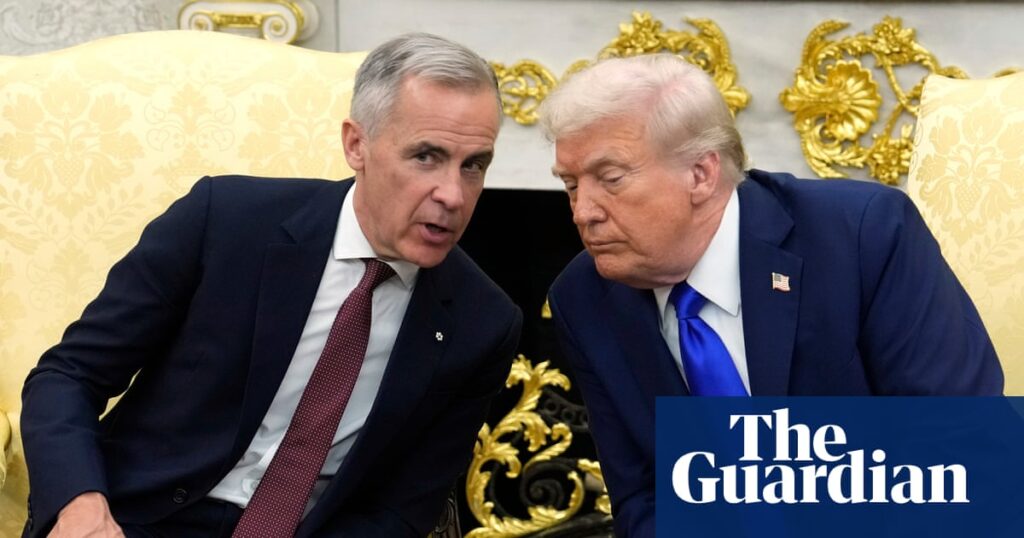
Donald Trump remarked on the “mutual love” yet “natural conflict” between the United States and Canada during a visit by Canadian Prime Minister Mark Carney. The meeting, held amidst ongoing trade tensions, highlighted progress toward a new trade agreement but offered little in terms of concessions on the existing steep U.S. tariffs.
Carney’s visit marks his second trip to the U.S. as Prime Minister, underscoring the strain on one of the world’s most enduring alliances due to Trump’s trade policies and annexation threats. Central to their discussions was the United States-Mexico-Canada Agreement (USMCA), a crucial component of Canada’s economy, which is slated for review next year.
Trade Agreement Under Scrutiny
Trump expressed openness to revisiting the free trade agreement, initially enacted during his first term, or exploring alternative deals. “We could renegotiate it, and that would be good, or we can just do different deals,” Trump stated. “We’re allowed to do different deals.”
In a notable departure from his stance toward Carney’s predecessor, Justin Trudeau, Trump praised Carney as a “world-class leader” and a formidable negotiator. “We want Canada to do great,” Trump commented. “But you know, there’s a point at which we also want the same business.”
Complex Dynamics and Diplomatic Challenges
When questioned about the lack of a trade deal, Trump described the situation as complex, citing “natural conflict” alongside “mutual love.” Carney, however, refrained from using the term “conflict,” emphasizing areas of competition that require agreement and the broader areas of strength in the U.S.-Canada relationship.
Frank McKenna, a former Canadian ambassador to the U.S. and current deputy chairman of TD Bank, noted the unprecedented deterioration in relations with the U.S. “Canadians aren’t being instructed what to do. They are simply voting with their feet,” McKenna observed. “I talk every day to ordinary citizens who are changing their vacation plans, and I talk to large business owners who are moving reward trips away, or executive business trips. There is an outright rebellion.”
Implications for the USMCA and Tariffs
In Canada, there is growing concern over the future of the free trade agreement. Carney aims to secure relief from certain sector-specific tariffs, though expectations remain tempered. “Improving relations with the White House ahead of the USMCA review is certainly an objective of the trip,” noted Daniel Béland, a political science professor at McGill University in Montreal. “But opposition parties and part of the Canadian public will criticize Prime Minister Carney if he doesn’t achieve some progress on the tariff front at this stage.”
The announcement comes as both nations navigate the complexities of their economic interdependence. The move represents a critical juncture in U.S.-Canada relations, with significant implications for future trade dynamics and diplomatic engagements.
Looking forward, the outcome of these discussions will likely influence the trajectory of North American trade policies and the broader geopolitical landscape. As the USMCA review approaches, both countries will need to balance their economic interests with the longstanding partnership that has historically defined their relationship.







